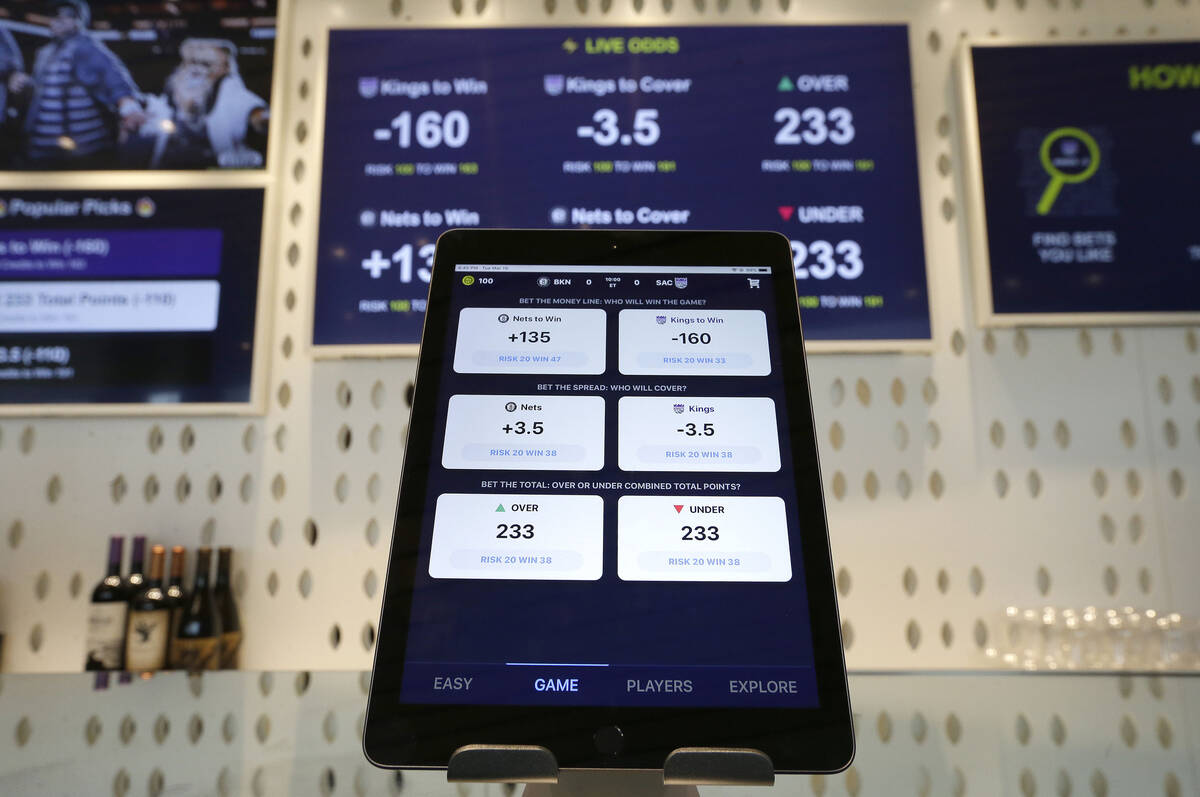Tribes appear to be winning war on California sports betting
California Native American tribes aren’t celebrating yet, but they appear to be on the way to winning their battle to keep mobile sports betting out of the state.
And if that sinks their own proposal to have in-person betting at their casinos, so be it.
Hundreds of millions of dollars have been spent on two competing sports betting proposals on the November ballot.
Proposition 26, supported by the bulk of California tribes with gaming ties, would only allow in-person sports betting at tribal casinos. Proposition 27, supported by major sports betting companies such as BetMGM, DraftKings and FanDuel, would allow mobile betting throughout the state.
Despite a deluge of pro-Proposition 27 advertising, only 34 percent of voters supported the measure in a recent poll, and the San Francisco Chronicle reported that the measure’s campaign has drastically pulled back its advertising, a move, the paper said, that “typically is an ominous sign.”
Kathy Fairbanks, a spokeswoman for the Yes on 26, No on 27 campaign, said defeating Proposition 27 was always more important to the tribes than passing Proposition 26.
“Yes. Yes, very much so,” she said with a laugh. “Twenty-seven is the much, much, much, much, MUCH bigger threat. Yes.”
The Proposition 27 campaign acknowledged a reduction in TV advertising but said it was putting its resources into digital advertising and direct mail.
“Clearly, the saturated television market is not benefiting either side, so our campaign is putting those dollars toward additional direct communication with voters in order to pass Prop. 27,” spokesman Nathan Click told the Chronicle.
“Saturated” is a fair descriptor for a race that has seen $526.9 million invested either for or against the two sports betting ballot initiatives, according to CalMatters. The campaigns for Proposition 26 and against Proposition 27 have spent a combined $315.1 million, and the campaigns in support of Proposition 27 and against Proposition 26 have spent a combined $211.8 million.
“The only winners right now are the TV stations and all the media companies that are getting ads,” Jason Scott, vice president of trading at BetMGM, said in August.
Richard Schuetz, who served as California Gambling Control commissioner from 2011 to 2015, said he’s not surprised to see the tribes poised to get their way on the ballot measures.
The former president and CEO of the Stratosphere, now The Strat, offered this advice to the people behind Proposition 27:
“Go to a tattoo parlor and have this put on your body some place: ‘I will never underestimate the tribes in California again. Never,’” Schuetz said. “Because if they don’t learn that lesson from here, they are completely stupid.”
The tribes look out for themselves but are also very connected to their wider communities, with the majority of the workforce at the casinos being nontribal members, Schuetz said.
Fairbanks drew a sharp contrast with the large sports betting companies behind Proposition 27.
“None of these companies are based in California,” she said. “None of these companies have created jobs in California.”
Proposition 27 proponents have touted a pledge to direct a portion of the revenue mobile sports betting generates to combating homelessness in California.
It’s “the only sports betting measure that provides real solutions to communities and nonprofit organizations in California,” Click told the Chronicle.
However, Schuetz said, the state’s voters have heard that kind of pledge before, such as when the state lottery was supposed to help finance education. Instead, the revenue amounted to a pittance in the overall budget, he said.
He called the revenue that sports betting would generate mere “budget dust” in California’s giant economy.
The showdown between the tribes and the larger companies isn’t even really about sports betting, Schuetz said. It’s about major firms trying to take the first step toward getting their iCasino apps into the state, something that could eventually threaten the tribes’ brick-and-mortar business.
“Sports betting is the camel’s nose in the tent,” Schuetz said.
For now, it appears that nose will be swatted away. The nonpartisan Public Policy Institute of California recently released a poll that showed 34 percent of voters support Proposition 27, 54 percent are against it and 12 percent are undecided.
No polling was available on Proposition 26, but even Fairbanks acknowledged that having two competing measures often leads to them both failing.
“The confusion tends to lead to ‘No’ votes,” she said.
Schuetz predicted that the tribes would push for the legislature to take action on sports betting in the state.
That way everyone can save their money next time.
“I think you’re going to see a real intensive effort among the tribes to get the legislature to develop a solution and not leave it to outside monied interests to try and buy a solution through the initiative process,” he said.
Contact Jim Barnes at jbarnes@reviewjournal.com or 702-383-0277. Follow @JimBarnesLV on Twitter.
























